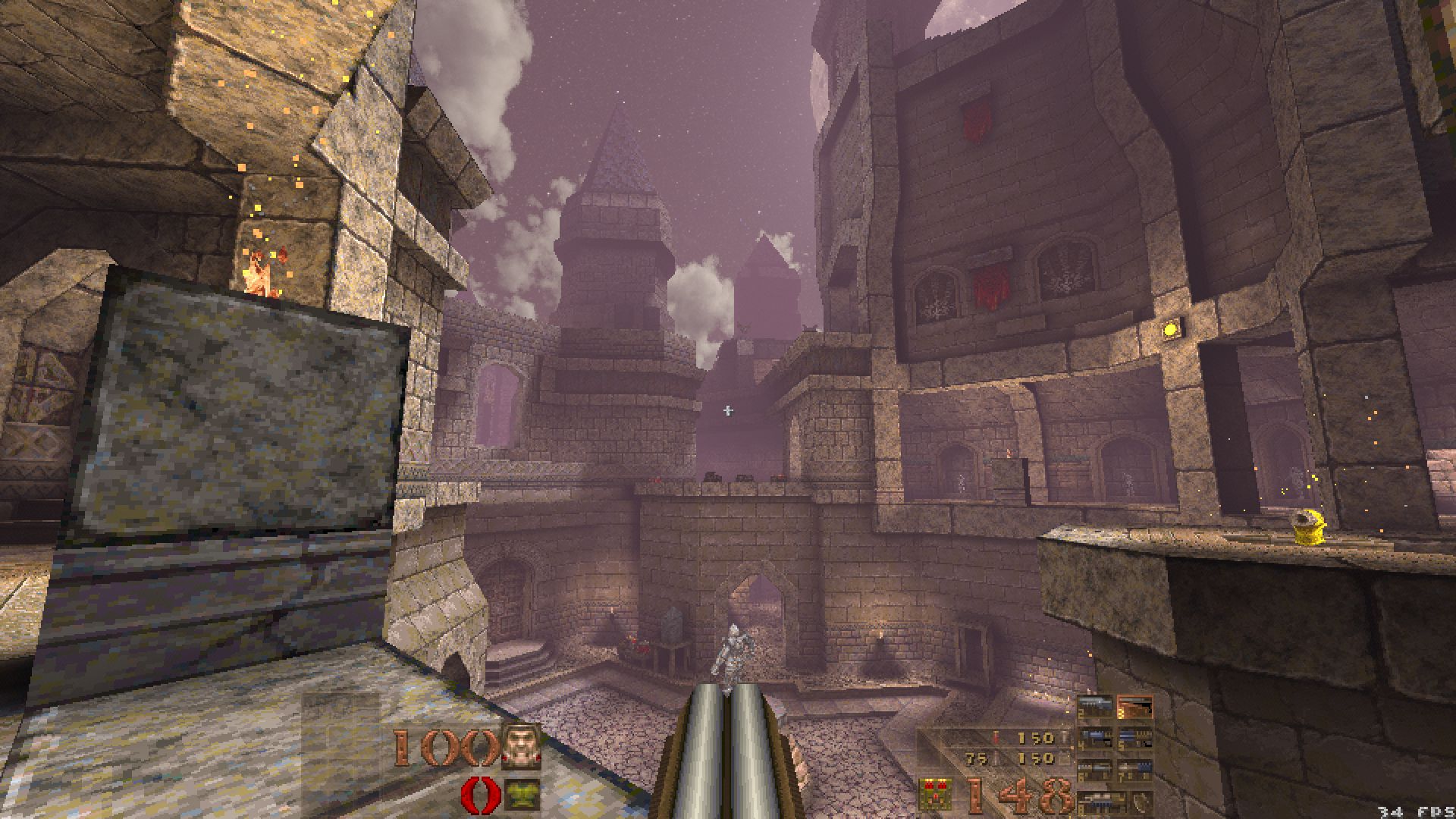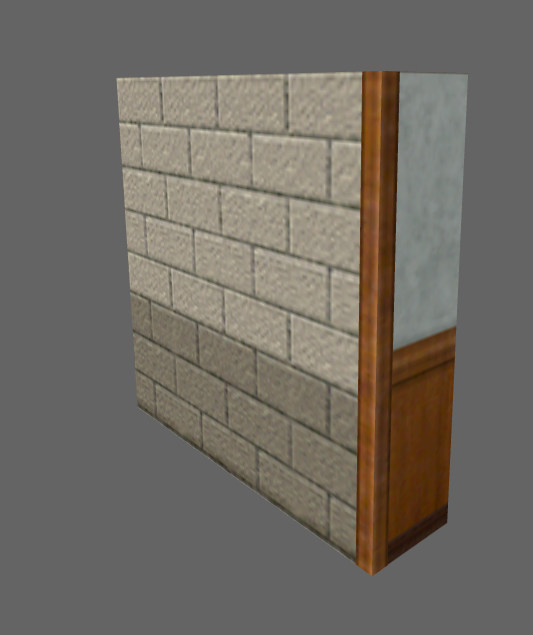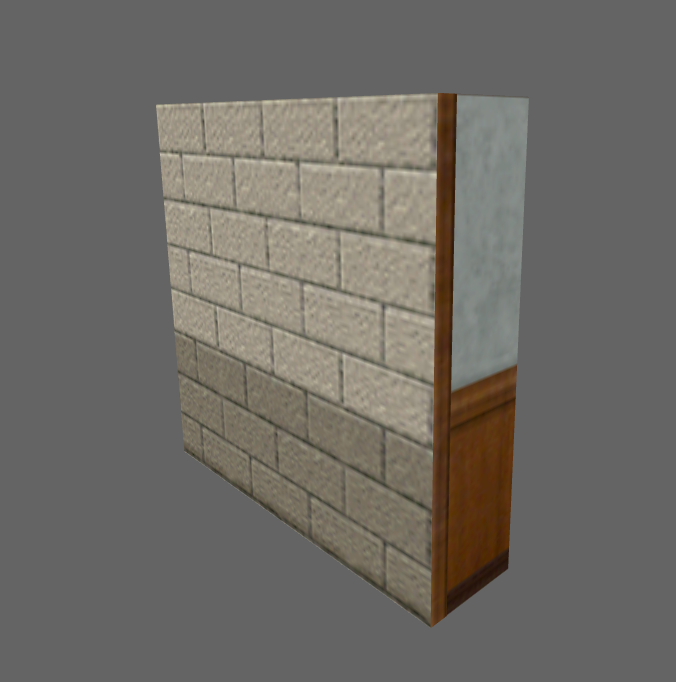So what the hell's been going on?: Part 2 (without the obnoxious capitalization)
Posted 1 week ago2024-12-09 15:57:23 UTC
Preface
Aaaaand there it is. I had originally intended to write one more after this one to form a nice trifecta, but I can't think of much to write there about, aside from talking about Alkaline maps like a dork.Less boring job talk
It's kind of a weird place, though I believe it highly depends on the exact office building. One thing that immediately stands out is what I like to call the "TLS handshake": upon entering the office building (which is actually pretty small and cozy), and then the room belonging to your department, the first thing that you do is go around employee desks and exchange handshakes or high-fives. If feeling communicative, also perform the ritual on anyone who's shown up later while you were gone on a break or something. Everyone seemed to do it, so I couldn't really not do it without feeling weird.People don't seem to view the presence (or lack) of an assigned project like a mark of status there, which is major luck. In fact, during one of those times when I felt brave and adventurous enough to take a trip to the kitchen and did some small talk with a colleague, he told me about being assigned to a project, paid appropriately, but not having to do much.
That leaves me with a lot of breathing room regarding what I can do or make during all that time.
Dimension hopping
Having this much leeway at the workplace, I often get a chance to sneak in an hour or two of playing Quake 1, if I'm not busy doing anything else worthwhile. All that on a company-provided laptop, which could probably run S.T.A.L.K.E.R. 2 if you tried hard enough. But I've chosen to instead give another go to Arcane Dimensions - because it's a classic at this point, and because I absolutely love it.For me as a mapper, Arcane Dimensions has been, if not a turning point, then at least a huge influence. It is an assortment of extremely high-quality maps, each of them an enormous vignette that could compete with a Dark Souls level (I may be exaggerating). Each map is tight, consistent in design, and a treasure chest of things to both learn from and gaze at obsessively. There are gameplay enhancements and dozens of new enemies on top of that, but they don't feel like an inconsistent mess and work really well with the rest of the mix. Arcane Dimensions' style is probably best described as "amplified vanilla": it relies heavily on textures either taken directly from the base game or the expansions, or created manually while using the vanilla assets as a source of inspiration or a style guide. It adheres to the same levels of pixel density, too. Also, you will often see several textures, - like a window and a brick wall, - combined into one to allow for small neat effects like fake ambient occlusion around the window.
On top of that, Arcane Dimensions goes wild with Quake 1 particle effects. They're sprinkled throughout the entire mod and look delightfully crunchy, especially if you play without texture smoothing. Fog is heavily relied upon too. I don't know if most levels there would ever be the same without the fog - it works really well. However, if I had to extract something truly important that I'd learned from Arcane Dimensions, or at least what it'd highlighted enough for me to notice and add it to my bag of tricks, is... Well, since I don't know and can't think of a prettier term for this, let's call it "material depth(?)".
Material depth is about making a brush face feel less like just a polygon with a picture glued onto it. It means that, if a face has a stone brick texture, then further behind it there must be more of that stone brick. You're not just trying to depict a stone brick from one side - you're trying to do that in all three dimensions.
Failing to maintain material depth throughout your map will result in it looking like a papier-mâché rather than an actual place built of stone and wood and iron and whatever other substances you decide to throw into your mapping cauldron. There are other things that contribute towards reducing the papier-mâché vibe, but I won't go into that here.
Anyway, Arcane Dimensions is a hell of a ride, consisting of around twenty maps, give or take, which are either gigantic epics or smaller and focused pieces. Many of the smaller ones are "covers" of existing maps or even classics like Doom's E1M1: Hangar, but some of the epics fall into that category too, Necromancer's Keep being pretty much a cover of Quake 1's Gloom Keep and barely trying to hide it.
There's actually a way to beat the mod: you have to collect the four runes (yes, again), meticulously hidden as secrets in some of the maps, to open a portal to the ending. I've never actually managed to get them all, but I can't bring myself to cheat around it and
changelevel myself into the end map. But hey, how about you give it a chance - maybe at least you will get to see it!
Quakeroach blog
Although I'm not worried much about my job security for the next one-and-a-half years, I was worried a lot more a few months ago. One of the reasons for that has been my lack of knowledge of any web frontend tech, and a lack of experience building a full web app consisting of a frontend and a backend.On top of that, after leaving TWHL at the time, I still had the urge to post WIPs, as people's reactions are a big part of my motivation to go on with the mappack. I needed a place where I could still post these and link to. Maybe my own personal page, too. I began thinking of building a simple blog website, using something basic and often required in interviews. My choice ended up falling on using React.
The issue of hosting came up soon after. Gladly, Quakeroach agreed to help host it, which sounded like a pretty good idea, considering how we have a good cadre of networkers around. After some pretalk and basic planning, the work on the Quakeroach blog started. Initially the idea was having it bound to a single user, but supporting multiple accounts was decided to be more natural to implement and having long-term benefits.
Now, if you're a fellow code conjurer, you might be thinking: "Isn't React a little bit overkill? A blog could do with serving content statically, and it'd be better for search engine indexing too, which is a thing you'd want for a blog website. Besides, there are solutions around, which were made specifically for creating your own blog websites. Why bother?". All valid points. But overcomplicating things is how I learn, and React seems to be a very frequent requirement.
I've considered rewriting the blog in a more fitting manner at some point in the future, using a simpler approach, maybe learning some PHP or Blazor. However, that was back then. Ironically, I've come full circle now and am pretty much writing blog posts here. I do plan to carry this project through to the end, though, as I'm sick of leaving things unfinished. Maybe we'll do a full-blown website once I'm better at this, who knows?
btw you can check it out here (it's a mess, pls don't hit me)
Uhh
Yeah. That's pretty much it, so far. I could talk more but I'd prolly bore you to death. Anyway, see u when I see u!2 Comments
Skoiler
Commented 1 week ago2024-12-09 22:34:12 UTC
Comment #106549
Seconding the shout-out to Arcane Dimensions. The project just bred good mappers; reminds of the golden age of Natural Selection. I like to refer to those maps as mini-metroidvanias, especially Forgotten Sepulcher. Makkon's textures help a lot, too.
monster_urby
Commented 1 week ago2024-12-10 01:36:44 UTC
Comment #106550
I really ought to give Arcane Dimensions another go. I've had a binge of 90s shooters back in 2021/22 where I played through a lot of the classics that I'd never completed legitimately before. I never got around to playing the various big mods as well. Pretty sure however that I worked with a lot of the level designers who contributed to AD in some way back at Slipgate Ironworks. Phantom Fury might not have released to high praise, but I was awestruck by some of the work the experienced Quake level designers put out.
You must log in to post a comment. You can login or register a new account.



